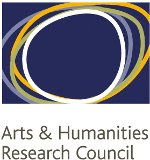Tuesday, February 15, 2011
David Shields
On February 16th, David Shields will be reading at Goldsmiths from his new 'Manifesto' Reality Hunger.
For more information visit the Pinter Centre Website: www.gold.ac.uk/pinter-centre.
Videos
About the Project
'Beyond the Linear Narrative...' is a 3 year AHRC funded research project being carried out by the Pinter Centre for Performance and Creative Writing at Goldsmiths, University of London.
Taking Pinter’s work as a starting point for, or symbol of, the fracturing of narrative across many art-forms in twentieth and twenty-first century work, this research project asks a series of questions about the links between inter-cultural and political change and the emergence, or re-emergence, of non-linear and fractured narrative.
Focussing on literature and performance, particularly in postcolonial and diasporic contexts, it will ask why non-linear narrative has been such a feature of this period’s artistic production. If these fractured and experimental forms are a response to the breakdown of the west’s grand narratives of progress, what forms of resistance or revision do they provide?
In what ways can they be seen to emerge from the increasing interaction of different cultures in the colonial, post-colonial and post-Cold War world? How do such fractured narratives work in postcolonial and diasporic writing and performance? How can these fractured forms explore our culturally diverse society’s competing and conflicting narratives?
The project addresses the ways changing understandings of the self have contributed to the disruption of linear narrative, and in particular, how fractured narratives enable the move away from the Cartesian mind/body duality to an understanding of the embodied self, making the writing of the body such an important element in contemporary performance, fiction and life-writing.
About the Pinter Centre
In line with Harold Pinter’s keen awareness of the centrality of political issues, the Centre is particularly committed to looking at postcolonial and diasporic literature and performance, and the ways in which contemporary creativity is forging new forms that respond to the cultural diversity of the world in which we live. It also has a strong interest in questions of gender, and writing and performing the body.




No comments:
Post a Comment